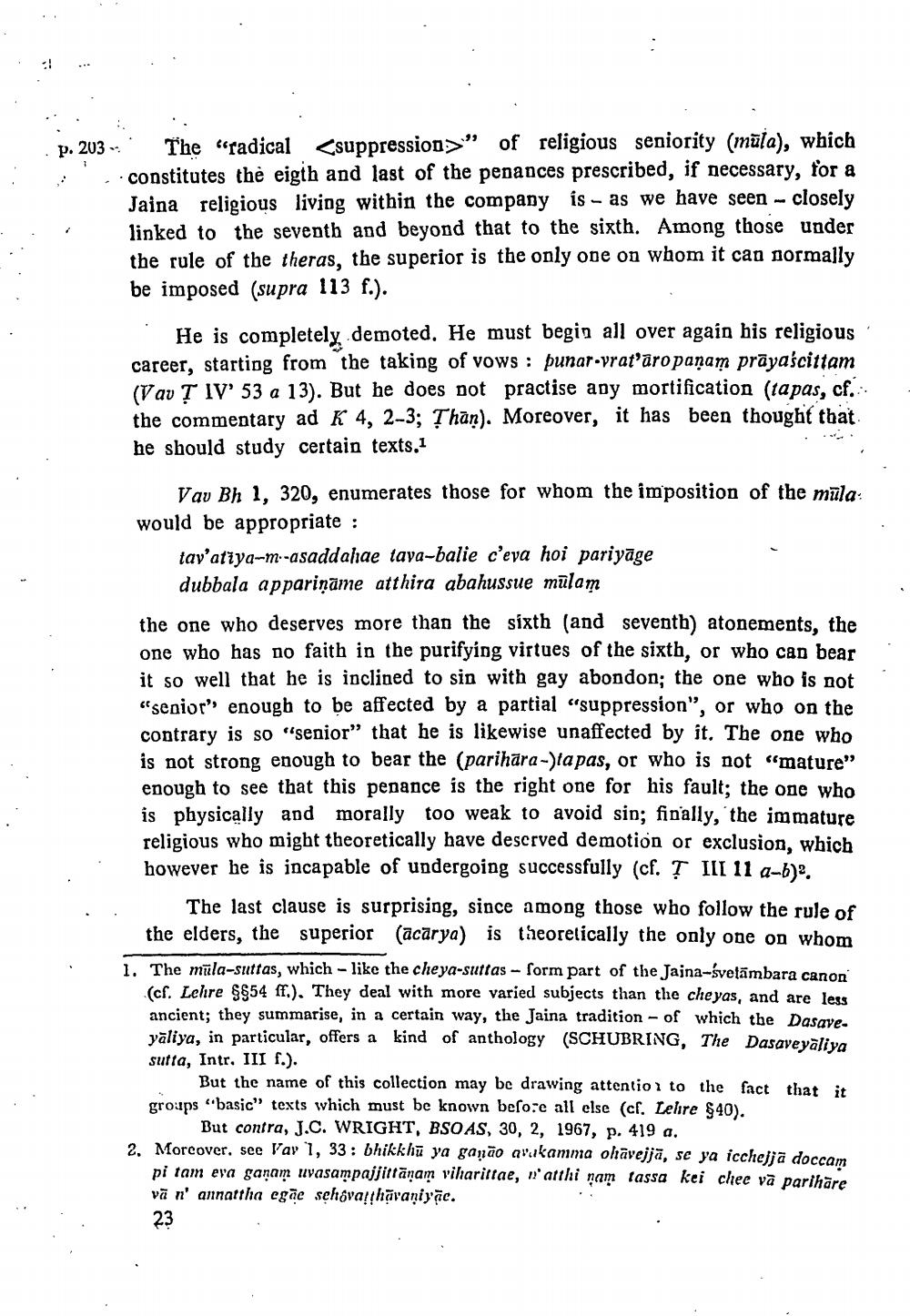________________
:
p. 203 - The cradical <suppression>" of religious seniority (māla), which
: constitutes the eigih and last of the penances prescribed, if necessary, for a
Jaina religious living within the company is - as we have seen - closely linked to the seventh and beyond that to the sixth. Among those under the rule of the theras, the superior is the only one on whom it can normally be imposed (supra 113 f.).
He is completely demoted. He must begin all over again his religious career, starting from the taking of vows : punar-vrat'aropanam prāyaścittam (V av T IV' 53 a 13). But he does not practise any mortification (tapas, cf. the commentary ad K 4, 2-3; Than). Moreover, it has been thought that he should study certain texts.1
Vav Bh 1. 320, enumerates those for whom the imposition of the mula would be appropriate :
tay'atiya-m-asaddahae taya-balie c'eya hoi pariyāge dubbala appariņāme atthira abahussue mulam
the one who deserves more than the sixth (and seventh) atonements, the one who has no faith in the purifying virtues of the sixth, or who can bear it so well that he is inclined to sin with gay abondon; the one who is not "senior' enough to be affected by a partial “suppression", or who on the contrary is so "senior" that he is likewise unaffected by it. The one who is not strong enough to bear the (parihāra-)ta pas, or who is not mature" enough to see that this penance is the right one for his fault; the one who is physically and morally too weak to avoid sin; finally, the immature religious who might theoretically have descrved demotion or exclusion, which however he is incapable of undergoing successfully (cf. T III 11 a-6).
The last clause is surprising, since among those who follow the rule of the elders, the superior (acārya) is theoretically the only one on whom
1. The mula-suttas, which - like the cheya-suttas - form part of the Jajna-svetämbara canon
(cf. Lchre &$54 ff.). They deal with more varied subjects than the cheyas, and are less ancient; they summarise, in a certain way, the Jaina tradition - of which the Dasave. yaliya, in particular, offers a kind of anthology (SCHUBRING, The Dasaveyaliya sutta, Intr. III f.).
But the name of this collection may be drawing attentio i to the fact that it groups basic" texts which must be known before all else (cf. Lelire $40).
But contra, J.C. WRIGHT, BSOAS, 30, 2, 1967, p. 419 a. 2. Moreover, see Vay 1, 33 : bhikkhu ya ganão awakamma ohävejja, se ya icchejja doccam
pi tam eva ganam uvasampajjitrānam vihariltae, 1'atthi nam tassa kei chee vă parihare vā n' annattha egãe schova!thavaniyāc.
23




